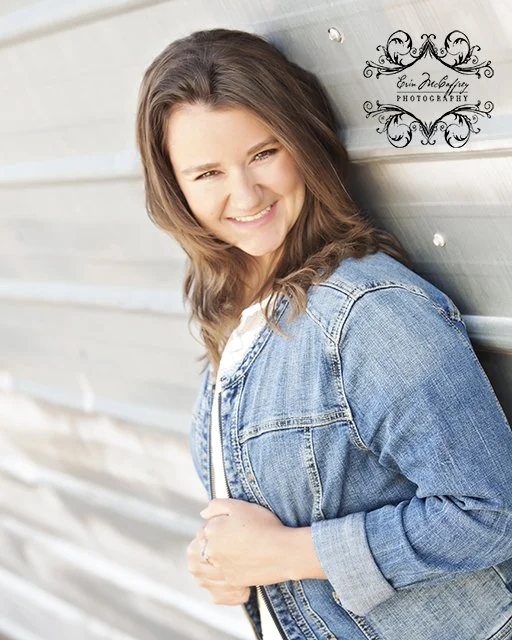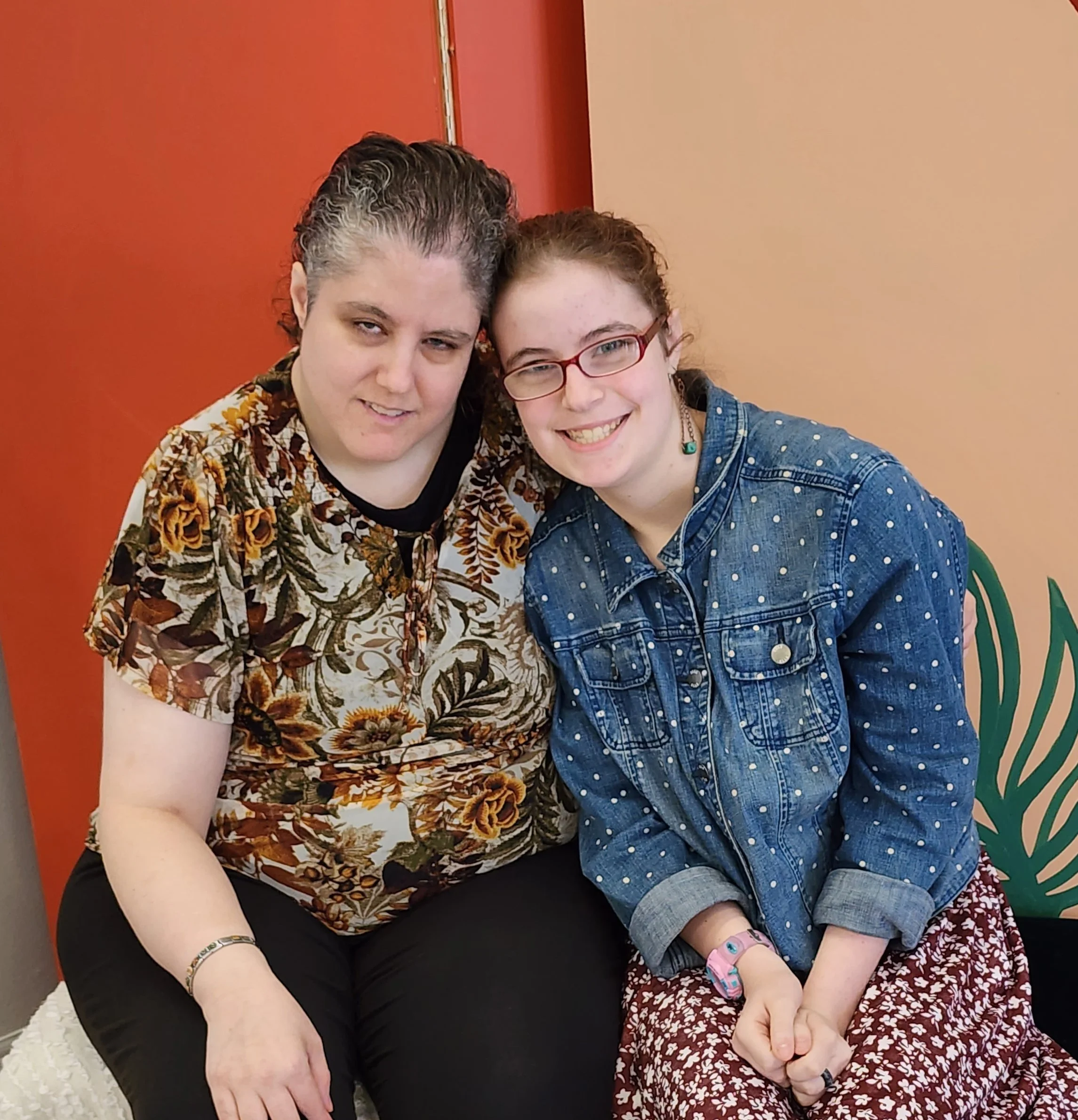Voices of Bardet Biedl Syndrome
Real stories. Real people. Real hope.
Joy
Federal Analyst| Sports Fan | BBS Trailblazer
Joy Ravenel, a proud Colorado native, is a full-time budget analyst for the Bureau of Reclamation and a passionate advocate for independent living with Bardet-Biedl Syndrome (BBS). Diagnosed as a teenager after years of unanswered questions, Joy has spent her life breaking down barriers and building a life filled with purpose, connection, and pride.
Despite the challenges of low vision, balance issues, and a long journey through therapy and adaptation, Joy thrives in her career managing complex federal projects and supporting over 200 employees — all with the help of screen reader technology and her remarkable memory. She lives independently in downtown Denver, owns her own condo, and is actively involved in her church and local community.
Joy’s story is a testament to persistence, resilience, and self-advocacy. She believes in learning skills before they’re needed, celebrating progress at your own pace, and never letting BBS define your limits.
Read Joy’s full interview here: Progress, Not Perfection - Joy’s Journey
“I really, truly do love my life. And yes, I have BBS. But, like I said at the beginning, I don’t allow that to stop me from accomplishing what I want to do.”
Hannah
Artist | Designer | Photographer
Hannah Schneider is a 24-year-old artist from Raleigh, North Carolina, whose journey with Bardet-Biedl Syndrome (BBS) began in late 2021, shortly after her younger sibling was diagnosed. A talented graphic designer and MFA student, Hannah uses her art as a powerful outlet to process her diagnosis and connect with others impacted by rare genetic vision loss.
Through deeply personal and emotionally resonant work, Hannah explores the uncertainty of living with BBS while navigating vision loss, identity, and resilience. Her art not only helps her cope but has also created space for others to feel seen, understood, and less alone.
Read Hannah’s interview and view her gallery here: Seeing Through Uncertainty - Hannah’s Journey
Check out Hannah’s website here: Hannah Schneider - Multimedia Designer
“Being able to share [my art] with others, and connect with people who also have [BBS], or some form of genetic vision loss, makes me feel like I have a community.”
Robert
Blind Community Advocate | Outdoorsman | Loving Husband
Robert Stigile, from Los Angeles, California, was born in 1966 and has lived with Bardet-Biedl Syndrome (BBS) his entire life — though he wasn’t formally diagnosed until his teenage years. Now in his late 50s, Robert is a vibrant example of resilience, lifelong learning, and advocacy. He works for the City of Los Angeles and also trains agents for a visual interpreting service for the blind and visually impaired.
Despite vision loss and the many challenges BBS can present, Robert lives life to the fullest. He hikes, deep-sea fishes, and is a licensed ham radio operator. He's also been a long-time leader in the blind community through his involvement with the National Federation of the Blind. In recent years, Robert has become more active in the BBS community, sharing his story to support others and encourage families navigating new diagnoses.
His candid reflections on navigating vision loss, weight management, and late-in-life diagnosis — combined with his unshakable belief in living a full, joyful life — make his story a powerful source of hope and perspective for others.
Read Robert’s full interview here: Living Fully with BBS - Robert’s Journey
“I go hiking, fishing, and do all the things that I love to do. Even with blindness, there’s absolutely no reason that [I] can’t live a full, productive life.”
Kathryn
Unstoppable Barbie Girl | OCD Warrior | Cowgirl at Heart
Kathryn Blalock is a 30-year-old from Edmond, Oklahoma, living boldly with Bardet-Biedl Syndrome (BBS). Diagnosed at age five, Kathryn has faced a range of complex challenges, including progressive vision loss, OCD, and multiple medical conditions. Yet she meets each day with courage, humor, and a flair for style. Describing herself as kind, courageous, and sassy, Kathryn finds joy in horseback riding, boxing, rowing, baking, and cheering on Oklahoma State football. She’s a creative force in the kitchen, a devoted country music fan (Luke Bryan is her favorite), and a true “Barbie girl” who loves fashion, hair, and makeup — even when she needs a little help coordinating colors.
While living with BBS hasn’t been easy, Kathryn’s strength lies in her resilience and self-awareness. Her journey through college, OCD treatment, and learning to embrace accommodations like the white cane reflect both hardship and hope. Through it all, Kathryn has remained committed to advocating for kindness, understanding, and support.
Read Kathryn’s full interview here: Barbie Girl with Big Dreams - Kathryn’s Journey
Check out Kathryn’s website here: Kathryn Blalock - Site and Blog
“I don’t let BBS define me. I feel like it’s taught me to be resilient and to live life to the fullest.”
Deidre
Community Volunteer | Faithful Mother | Resilient Believer
Deidre Vansyoc was born in Denver, Colorado, in 1983 with BBS. Diagnosed at age nine, Deidre has faced challenges related to vision loss, extra digits at birth, learning differences, hearing loss, and a complex spinal condition that required major surgery as a teen. Despite these obstacles, she remains resilient and optimistic.
Over the years, Deidre has undergone numerous medical procedures and continues to manage health issues related to BBS. Today, Deidre leads a full and meaningful life. She works, raises her daughter, and volunteers in her church nursery. Her story is one of determination, faith, and a deep belief that having BBS doesn't define what she can achieve. Deidre hopes that by sharing her journey, others can better understand this rare syndrome—and see the strength that lives within those who have it.
Read Deidre’s story here: What It’s Like to Live with BBS - Diedre’s Journey
“I realize this is a lot to take in, but this is my journey with BBS. I believe that even though I have BBS, I feel I can do anything that everyone else can do.”
Christine
Professional Analyst | Tech Pioneer | Neurodivergence Advocate
Christine, a Quality Assurance Analyst with enGen, shares her journey of being diagnosed with Bardet-Biedl Syndrome as a teenager and how it shaped her path toward a fulfilling career in digital accessibility.
With support from CAI Neurodiverse Solutions, Christine uses her lived experience with visual impairment and neurodiversity to help make websites more accessible for everyone. From mastering screen reader technology to excelling in her role despite vision loss, Christine is an inspiring example of resilience, adaptability, and impact.
Read Christine’s story here: Success Story - Christine, Neurodiverse Solutions Candidate - CAI
Hear directly from the BBS community:
-
Joy: I was finally diagnosed in the late '90s, after years of uncertainty. My symptoms didn’t fit the typical mold, so it took a long time.
Hannah: I was diagnosed in 2021, during my senior year of college, after my younger sibling was diagnosed. My symptoms weren’t obvious at first.
Kathryn: I was diagnosed when I was five. I had extra digits, vision issues, and weight issues—classic symptoms.
Robert: I was officially diagnosed around age 11, but the signs were there at birth. I was born with extra digits and started losing my sight as a teenager.
Deidre: When I was nine years old, I was diagnosed with this disease. Back in the 90s there wasn’t much research on this disease, but there is now.
-
Joy: I like listening to music, following sports, and watching cooking competition shows. I'm also rebuilding my church community and love going to CU football games.
Hannah: I love creating art—especially pieces about my journey with BBS and vision loss. It’s become a big part of how I cope.
Kathryn: I enjoy horseback riding, rowing, boxing, baking, and cheering for Oklahoma State football. I’m also really into fashion and makeup—definitely a Barbie girl.
Robert: I love hiking, deep sea fishing, and using my ham radio. I also love listening to sports on the radio—baseball, football, basketball, hockey.
-
Joy: I'm a budget analyst for the Bureau of Reclamation, managing finances for over 200 employees. I use screen reader technology to do my job and love the challenge of complex tasks.
Hannah: I’m currently in an MFA program for graphic design. Before that, I studied design as an undergrad. My diagnosis hit just as I was finishing college, which made things especially hard.
Robert: I work part time for the City of Los Angeles in Parks & Recreation, helping people navigate our registration system. I also train new agents at Aira, a visual interpreting service for the blind and visually impaired.
-
Joy: Vision loss, mobility, balance, OCD, and needing to advocate for myself constantly. Every skill I’ve learned took time.
Hannah: The uncertainty. Not knowing how fast my vision will decline. Seeing my sibling lose vision faster than me is scary.
Kathryn: OCD was a big challenge, and I’ve had multiple surgeries for kidney and ear issues. Accepting help was hard at first, but now I embrace it.
Robert: The hardest part was losing vision as a teenager and being misunderstood. People thought I was lazy when I couldn’t see. That was tough.
Deidre: From the age of 1 until now, I have had tubes in my ears three times and two surgeries on my left ear. At the age of 14, I had back surgery to have a metal rod put in my back, and just recently, I was diagnosed with liver disease.
-
Joy: My faith, friends, and routines. Having adaptive tools helps me stay independent and grounded.
Hannah: Creating art has been my lifeline. It’s how I process and connect with others.
Kathryn: My family, especially my mom. My church and the BBS community also keep me strong.
Robert: My wife—we’re celebrating 25 years of marriage. She’s also blind, and her support means everything. Family and friends lift me up.
-
Joy: Everyone’s experience is different—even in the same family. With the right tools, people with disabilities can do so much.
Hannah: Even doctors often don’t know what BBS is. That makes it feel lonely. But connecting with others changes that.
Kathryn: You can still live a full life. Don’t give up. Advocate for yourself and find joy in what you love.
Robert: The medical world doesn’t always know what to expect, but don’t let that limit you. I’ve been told I wouldn’t live past 40—here I am hiking, fishing, and working.
Deidre: I believe that even though I have BBS, I feel I can do anything that everyone else can do as a normal person, such as go to work, raise a daughter, and volunteer in my church nursery.
-
Joy: Learn the skills before you need them. Be patient with yourself. And never compare your pace to someone else’s.
Hannah: Use whatever outlet helps you process. For me, it was art. Find your way to express what you’re going through.
Kathryn: Advocate hard. Take things at your own pace. And know that you are not alone.
Robert: Get involved in the BBS community. That’s where the real knowledge and support live—not in general medicine. And remember: there’s nothing you can’t do.






